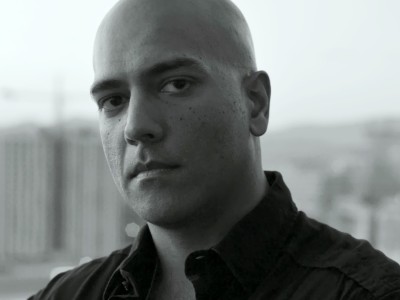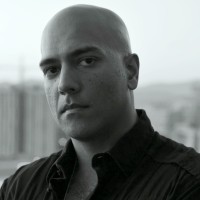When did you begin to write creatively? Was this something you had a flair for early on in your life?
I started writing fiction when I was at USC. From the very beginning, I loved the process of creating a story and then letting go of the story and having people read it. It’s a wonderful interplay–the writer writes, the reader reads, and the story becomes the reader’s story instead of the writer’s story.
I was an English major in college, but my senior year, I was admitted into medical school. I faced a dilemma. I wanted to write but I also wanted to become a physician. Thankfully, I had good mentors in USC’s creative writing program, and they assured me that when the time was right for me to write fiction, I would, whether that was now or later. So I went to medical school, and even business school, and then I did my postgraduate training. I didn’t have much time to write in those days, but when I started my medical practice a few years ago, I focused on writing again. Writing is now part of my daily life.
What writers, or genres, do you feel have influenced your work most strongly? What kinds of literature do you enjoy reading?
I like to read fiction that is considered to be literary and also fiction that is considered to be genre. And I love fiction that toys with both. Scott Spencer, the literary writer who has received all kinds of accolades for his more ‘serious’ work, recently wrote a horror book, Breed, under a pen name. It was wonderful. It had the best of the literary and genre worlds. It had character movement, great writing, and a raucously fun plot. It’s my favorite book of the past few years.
I enjoy so many different writers, from Joyce Carol Oates to T.C. Boyle to Stephen King to David Foster Wallace to Roger Zelazny and so many others. I also enjoy rereading stories because there’s always something new I discover. This weekend, I’m going to reread Neil Gaiman’s “Murder Mysteries” for probably the fourth or fifth time. It’s a quick read, but it’s layered. It’s a fun story to discuss with a friend or loved one on a Friday night over sushi.
And of course, Herman Melville is a pretty cool literary dude. I try to reread Moby Dick every half-decade or so. It truly is the great American novel to which all others must aspire.
Where many people wear one or maybe two hats, you have educated yourself in a variety of different fields. How do you balance everything and still find time to be a writer?
My varsity basketball coach from high school taught us the Priority Principle, which is a sports and training concept that says that you should work on the weakest part of your game first, before doing anything else. This way, you make sure to dedicate time to it. Since writing is such a solitary process, I employ the Priority Principle. I do it first thing in the day. Writing requires shutting out everyone for a set period of time, sitting at the computer, and writing. For me, it’s easiest to find this time in the mornings, before I go to work. So I write for an hour before heading to the office most days. Writing is a habit. Literature is an art, but writing is a craft, meaning that the only way I can produce literature is by sitting down day after and dealing with the technical aspects of writing. I think most writers are this way. Thankfully, the rest of my life is more conducive to participation. I have a wonderful staff that keeps my professional life in order in my medical practice and business. As much as writing is a solitary endeavor, medicine and business are team endeavors.
I have a strange checks and balances in my writing life. Sitting down to write in the mornings, especially since I’m a night person, is a daily struggle. It’s a discipline. When I don’t write as much as I need or when I start to skip days or weeks, I start to get some variation of a recurring dream. In this dream, I’m the age I am now, but for some reason, I’ve re-enrolled in college. It’s the end of the semester and I haven’t done any readings or turned in any papers or even turned up to any classes. I’m supposed to take the final exam, but I have no idea where my class is being held.
What do you think the dream is about?
I think it’s all about anxiety. When I don’t write for a while or when I slip from my writing routine, I get anxious. No matter how much I may have written in the past, if I’m not writing today and tomorrow and the next day, I’m not a writer. If I don’t write, I become only an author, someone who has written a few things here and there in the past. So in many ways, I write to avoid anxiety. I write to keep that recurring dream away.
The opening paragraph of “Occupational Hazard” is magical:
“I almost died, or was killed, really, three times, by three different girls, all of whom I loved, and probably still do, and even though they tried to off me, I wish them the best, because I’m not one to hold grudges. I’m not angry at them, and in fact, in some way, I can sympathize with their plights and emotional states, because at the end of the day, they only wanted to make sure that I wasn’t nibbling caviar off of anyone’s nipples but theirs. I can’t fault them for the laparotomy scar on my abdomen, dime-sized patch of baldness on my head, or aversion to being around anything plastic. By its nature, cooking professionally is a dangerous business, and when you throw someone like me into it, shit happens. I just have to chalk up these experiences as occupational hazards, part of the price I pay to do what I do.”
The reader immediately likes this narrator for his warmth, his candor, and his seeming empathy, and yet, in the very same paragraph, he hints at his girlfriends’ jealous rages to come. How did this particular story come to you?
All stories originate differently. “Occupational Hazard” started off as a single line: “I almost died, or was killed, really, three different times, by three different girls.” That line came to me, and I wrote it down, and left it alone, since I was working on something else at the time. Then a few weeks later, when I started actually writing what would become “Occupational Hazard,” the rest of the story filled itself in. I had no idea that the story would be about a chef until I started writing it. People often ask me if my stories are autobiographical, and I thankfully can say that this one was not. I still keep my cooking knives in plain sight in my kitchen.
How did you create this guy? You seemed to get right inside the head of a real professional chef…a Kitchen Confidential-style insider’s view.
I have good friends in the cooking business and they enjoy life, and since they’re always working late, they especially enjoy late night life. It’s karaoke at 2 a.m., a bottle of Black Label finished off by 4 a.m., and a couple of double chili cheeseburgers at 6 a.m. They have large appetites in so many different ways. I wanted to convey that in “Occupational Hazard.”
Danielle Ofri, Editor-in-Chief of the Bellevue Literary Review, wrote in a 2011 Slate article that “[i]t is increasingly apparent that doctors and nurses need the creative skills that the humanities offer to be effective and wise caregivers.” Would you agree? Does your creative writing skill ever show itself in your work as a physician? Does it balance you, or otherwise help you, as a doctor?
Writing balances me out. It keeps me energized in my medical practice, and my medical practice helps inform my writing. Medicine and writing share a common thread in that they both rely heavily on technical skill while also requiring a view of the human experience. But they’re very different as well. Writing is solitary, and medicine is the furthest thing from that. In medicine, there’s a continued, daily two-way interaction between patient and physician. Decisions are made in tandem. But when I write, I’m thrust into my own mind. It’s just me. Sometimes it’s a good place to be and sometimes it isn’t. But it’s a necessary part of my gestalt.
What are you working on these days? Do you chiefly write fiction/short stories, or do you dabble in other forms as well?
I have an evil but good-natured alter ego who goes by the pen name of Xavier Braze. He dabbles in genre fiction, particularly zombie fiction. I’ve published a few zombie stories under this pen name, and right now I’m finishing up a couple of Braze projects. The first is a collection of interrelated stories, called Zombies In LA! The stories are about zombies, but only tangentially. There’s a literary bent to these stories, I hope. They’re really about people who have to deal with jilted wives or lying husbands or overbearing families, all while surviving in a crazy zombie world run amok.
The second project I’m working on is a Choose-Your-Own-Adventure type zombie novel. It’s the zombocalypse, and you, the reader, have returned back to your mother’s old house to discover that even though you left your old neighborhood years ago, it’s still a horrendous place to be. I should have it finished in the next couple of months and hopefully out to a publisher by next year.
What is the best bit of writing advice you’ve ever been given?
Ron Carlson said to me that writing is a routine. And he is right. Inspiration happens from sitting down and writing. It doesn’t happen by thinking about writing. I always say that my inspiration is my chair. There is no substitute for the actual act of writing.



